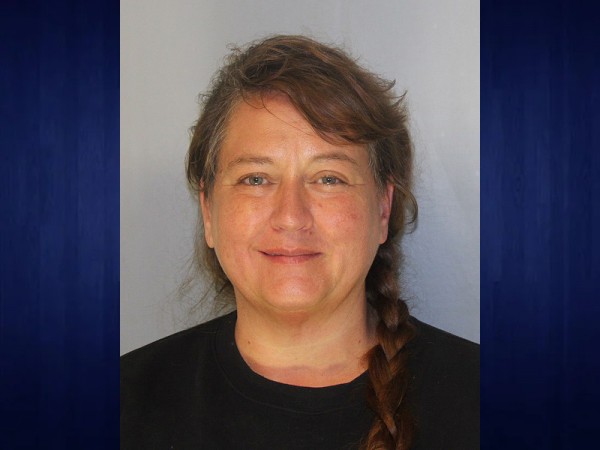Hall County Sheriff Gerald Couch recently renewed a federal immigration enforcement initiative that he said has been good for Hall County.
The initiative, known as 287(g), a partnership between U.S. Immigration and Customs Enforcement and local law enforcement agencies, has been a divisive issue in some of the six Georgia counties that have been a part of it.
“We’ve had an excellent partnership with Immigration,” Couch said in an interview with AccessWDUN. “Any concerns or issues that we’ve had over the years, I know especially since I’ve been sheriff, they’ve been readily addressed.”
Currently, only six agencies in Georgia are included in such partnerships – and Hall and Gwinnett counties are among those six. Others include Cobb, Floyd and Whitfield counties, along with the Georgia Department of Corrections. Bartow County recently opted not to renew the program there.
Couch was scheduled in June to sign on to the partnership for another three years, but instead he received a letter asking instead for a one-year extension of the current agreement. The program has been effective and has removed several violent offenders from Hall County, he said.
“I believe that the program has been successful, and it continues to be, in removing those individuals that come here to prey on other people, especially when it comes to drugs and violence, firearms and things of that nature,” Couch said. “This is a very valuable tool and after those people get arrested for those type of offenses, once they meet the requirements here, then they need to be removed from our community, so they won’t commit any other acts or further violence.”
But 287(g) doesn’t mean a person arrested under the program immediately will leave the community. That person must satisfy local charges and sentencing before being turned over to immigration officials. County officials are responsible for housing the inmates while they are held on local charges.
Couch said the additional expense of housing of inmates for federal officials once they satisfy local charges has been minimal because his office has a good working relationship with ICE officials, who have 48 hours to pick up the offender who has satisfied local charge requirements.
“That’s a savings to us to get them out as quick as we can,” Couch said. “They always are well within that 48 hours – sometimes even 24 hours. We’ve got a good relationship with them coming to pick up their persons that they are responsible for.”
Couch said the costs of 287(g) to the county are the salaries of the three officers involved in the program. He said the deputies assigned to the 287(g) unit come from within the sheriff’s deputy ranks and were not added just to handle ICE cases, but 287(g) is a specialized assignment like being on another specialized division.
“If the inmate is here on state charges, of course that’s the responsibility of me as sheriff to pay that, but once that window closes and they’ve met that obligation of being sentenced, then it becomes ICE’s responsibility to remove that inmate as soon as possible so that we do not incur that housing cost,” Couch said. “They have their own separate offices because there’s integrity of computers and all that information has to be maintained. That’s why we’ve got a sergeant over it, so we have that oversight.”
The average cost of housing is about $63 a day.
Former Hall County Sheriff Steve Cronic signed the first 287(g) agreement in 2008 and it remained in place during his term of office. When Couch was elected in 2012, he received a letter asking him to extend the agreement for an additional year while terms were rewritten.
“I signed that agreement,” Couch said. “I anticipated actually maybe the program might go away.”
In June 2013, Couch received a document requesting a three-year extension of the partnership, which he signed.
Couch said he’s not sure what the new agreement might look like under the Trump administration, but if it doesn’t have budgetary consequences and continues in its current form, he anticipates renewing the partnership.
“If it does stay the same, I don’t see any reason not to,” Couch said. “If a new (agreement) comes out with extra monetary burdens that would affect our taxpayers here, as sheriff I need to examine that and see pros and cons of the benefits versus the costs. I firmly believe that the federal government for decades has caused us so much issues in the flip-flopping of ideas on how to deal with immigration.”
Although the program has caused controversy in Hall and particularly in other counties, Couch said he doesn’t hear much discussion about it locally.
“Especially when I was campaigning it was a topic of discussion then,” Coach said. “I don’t hear it out in any of our communities as far as an average citizen talking about it. Honestly, the times it comes up is when we have questions from the media.”
In fact, Couch said he doesn’t believe most residents know much at all about the 287(g) program.
“I do a lot of speaking engagements and I discuss it,” Couch said. “I’m the one that brings it up. It’s a rarity that anyone ever brings it up. If they do, it’s more of a big picture ‘how does the federal government dealing with immigration on the border affecting you in Hall County?’ That type of question. When I mention 287(g), I have to educate them on that. They don’t have a clue what it is, because I guess they’re out living their lives.”
Couch is concerned that the burden for enforcing federal laws has shifted more and more to local communities
“The federal government should enforce the laws that they’re responsible for and fix this mess,” Couch said. “At some point in time, we need to agree on a policy and move forward with it.”
Asked about changes in handling of immigration cases since President Trump took office, Couch said immigration officials are telling him the federal government will enforce the law as it is written, including laws that have been on the books for decades.
“It’s a good program and I’m glad that we have it,” Couch said. “I hope it continues in the model that it currently has.”
GWINNETT COUNTY
Gwinnett County Sheriff Butch Conway has been one of the most vocal supporters of 287(g).
Conway recently renewed that county’s agreement with ICE to put a hold on undocumented immigrants who become incarcerated.
"If the arrestee is an illegal alien, these deputies place a hold on the arrestee," said Deputy Shannon Volkadov. "They are then released to ICE custody within 48 hours of satisfying any local criminal charges they face."
Many opponents of the partnership say such agreements deter people from reporting crimes for fear of deportation. However, Volkadov said inquiring about legal status is only done inside the jail and is never done, or even allowed to be done, by deputies who are out on the streets.
Conway entered into the 287(g) agreement for the first time in 2010 and said the ICE partnership will continue to be renewed as long as he remains in office.
Since that partnership began, Conway’s deputies have questioned more than 52,000 arrestees about their immigration status, and nearly 15,000 of those questioned have been transferred to ICE custody.
Statistics provided to the Atlanta Journal Constitution by the Gwinnett County Sheriff’s Office show that the nearly 40,000 individual charges against Gwinnett detainees over the years include 42 counts of murder, 123 counts of rape, and 287 aggravated child molestation charges.
BARTOW COUNTY
Not every county that has signed on to the 287(g) partnership is continuing with it.
Citing lack of staffing as the reason, Bartow County Sheriff W. Clark Millsap told the Atlanta Journal Constitution his office ended its participation in the program in March, just more than a year after he entered the agreement with ICE.















